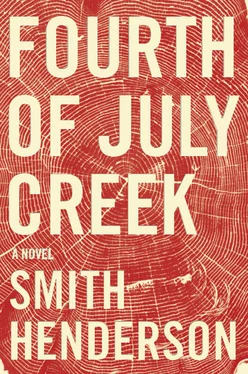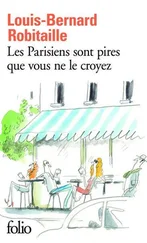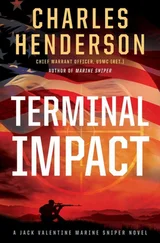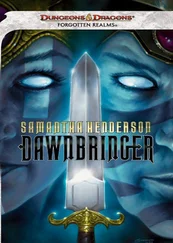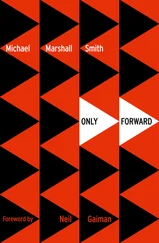He’d driven down to Missoula to see Mary, but she wasn’t in, so he called Spoils. He wandered up to the Oxford to wait for him, drank beer with a rotating company of sidling inebriates, and hale, well-met drunks. A table of businessmen slumming it. Eventually Spoils.
Someone gripped Pete at the elbow, chilled the nerve in his arm all the way up his neck. A short old man with his hat in his other hand. Familiar. Pete searched for the man’s name. An old cowboy from Choteau. Name of Ferguson. Part-timer on the ranch. Had a good arm, played minor league baseball in the 1950s. Could hit you with a coal of horseshit from twenty yards.
“Mr. Ferguson,” Pete said, slipping out of the man’s grip, standing, and shaking his hand.
The man’s eyes were wet and he was moving his jaw around like he had taffy stuck in his molars.
“You tell your family how sorry I am,” he said. “He was a helluva man.”
Pete felt behind himself for a barstool and dropped onto it.
“Thank you,” Pete said.
Ferguson panted out a few sentiments that Pete couldn’t really hear for the rush of blood in his head and then Ferguson was shaking his hand again, replacing his hat, and heading out the front door.
“What is it, Pete?” Spoils asked.
He walked out without answering. He couldn’t form the words to say that his father was dead.
Charles (never “Chuck” or “Charlie”) Snow had been a respected if not especially liked hard-ass in and around Choteau, Montana. He hated Communists and liked to talk about Communists. He felt like there should be more ICBMs in the idle land to the east of Malmstrom Air Force Base and would arrange his business so he could drive out that way to be among the ones that were there. He had worked hard and married when he was good and goddamn ready at the age of forty. She had only just turned sixteen, but this was no scandal in 1947. He kept her in sea-foam and turquoise polyester dresses and made sure she didn’t have to smell of horseshit or hay like the other ladies in town. By the time his sons were out from under her skirts, he had settled into a considerable cowboy barony, an outfit that used to have about two hundred head called the Purple T. He preferred work over every endeavor, and never really acquired a taste for the company of others. He had a stake in more than his share of things (timber, car dealership, and lately, natural gas leases) and never let a person forget it. He made rivals to vanquish. He’d seemed only able to stand people when they came hat in hand. For the most part, people mildly hated him but never said so to him and only rarely among themselves, which only fueled his misanthropy.
Pete pulled onto the property, his father’s spread filling an entire canyon bisected by the Teton River, a stony and brachiate course that raced out of the mountains but ran slow and low across the property in the fall, and in the winter iced solid to the bottom in places. Medallions from the quaking aspen lay about in a golden hoard, blowing up in parade confetti as he drove through them. A few Indian paintbrushes still glowed red like small tissue-paper fires at a grade-school play. Pete felt a homesick sorrow at the little differences, at time itself. The barn’s new coat of paint. A whole stand of pines behind the house had vanished. Where a humble orchard of apple trees had once been just a short walk from the back door, a white gazebo had been erected. The place looked shorn, fussed over like a toy dog.
Bunnie. These were Bunnie’s improvements. Just like Sunday services at the Christ the Light nondenominational church on the east end of town. Charles Snow had been as spiritually curious as a fence post, and Pete doubted that his father had ever changed in any meaningful way, even after Pete’s mother died. But there was an aptness to his late conversion, as though he always knew that at the end of his life he’d have to do something to avoid going to hell.
It was a new truck in the field, not the old man’s. Seeing Pete, Turner pulled alongside the fence, but the fence beam blocked Pete’s view of Turner up in his pickup, so he stopped and got out. Turner leaned over and rolled the passenger window down.
“Howdy, Pete.”
He looked older. He was older. Whiskers gone completely to white. The saggings under his eyes like two tea bags.
“Mr. Turner. Nice truck.”
“Had it a couple years now. But thanks.”
Pete stood back from it. Whistled.
“Not a mark on it.”
“Well, yeah. I don’t do much these days.”
“Lucky you.”
“Well now.” He didn’t like much being told he was idle.
Pete cleared his throat.
“Ken come up, and me and him got the cows hayed,” Turner said. “You’re gonna want to check their water in the morning. Might could have a freeze.”
“Thanks for coming out and looking after the place.”
“Bunnie’s staying up at her people’s. We’ll be by tomorrow. Hay ’em again for you.”
“It’s all right, I can do it.”
They looked up at the empty house.
“So’d you hear it from Bunnie, then?”
“Yeah,” Pete lied. If she’d called, it was probably to the old number in Missoula. Even Ferguson assumed he knew.
“It happened right out there?” Pete gestured toward the middle of the pasture.
Turner sniffed, nodded.
“With his own pickup…?”
Turner shook his head.
“Me and Ken think he was haying the cows all by himself. There was a rock on the gas pedal. He prolly fell out the back and broke his hip.”
“If he fell out the back, how’d it run him over?”
“The alignment’s all out of kilter. The pickup was still doing big, slow loops in the pasture when Bunnie come back from her trip to Billings. I figure it swung back around on him.”
Pete set his chin on the fence post, looked out over Turner’s hood into the pasture. Turner took off his cap and ran his hand over what was left of his hair and tugged the cap back on. He coughed uncomfortably, and Pete raised up and thanked him.
“My number should still be penciled on the wall by the phone.”
“All right.”
“Call you need anything. If you get busy with the arrangements. We’ll come out.”
“Will do.”
An odor of leather, sawdust, and lilac and some ineffable scent of the house or his parents themselves that was the smell to him now of longing and dread at once. What had come to seem like the smell of passed time. Pete took in the kitchen, the old man’s last day. A half-cup of coffee where he’d left it, Bunnie didn’t touch the stuff. Usually there was a hint of manure wafting off the old man’s boots from the mudroom, but not today. His jacket and boots were at the morgue.
Pete sat at the table in front of an unpromising game of solitaire. His father had gotten up when he saw he wouldn’t win. Went out to the barn. Pitched hay out of the loft into the back of the pickup. That alone made him ache. Or was he coughing, hacking up bloody bullets of snot. Did he try calling Turner. No, too proud to call anyone. But didn’t want to be heaving himself in and out of the cab, coughing, sore. Figured he could clever himself out of this little predicament, just idle his way across the pasture.
Then, stars. Found himself lying in the frozen mud, the old clover. The pain in his hip, astonishing.
And in all that pasture, the truck orbits back to him. Did he find that ironic.
What it would feel like, a pickup on your chest.
Pete went down the little hall to the den, descended the short landing into his father’s lair. Fish and fowl on the cedar walls, and pictures of the same. A framed collection of caddis flies and stone flies surrounded by a dozen plaques and plates from fraternal orders and associations.
Читать дальше
